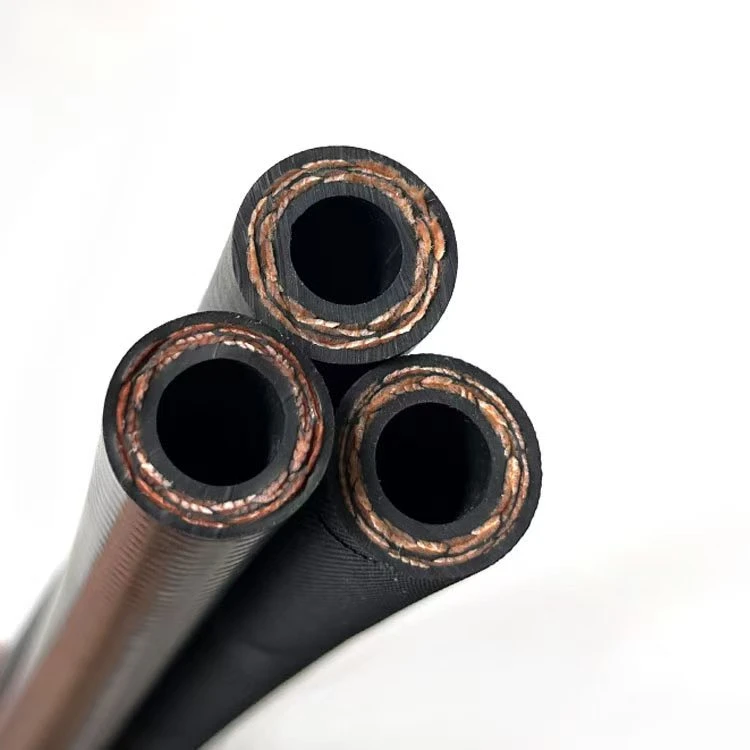Custom High-Pressure Fuel Lines for Enhanced Performance and Durability in Engines
Nov . 26, 2024 19:17 Back to list
Custom High-Pressure Fuel Lines for Enhanced Performance and Durability in Engines
Custom High Pressure Fuel Lines A Comprehensive Guide
In the world of automotive performance and modification, the significance of high-pressure fuel lines cannot be overstated. These components play a crucial role in ensuring that an engine receives the right amount of fuel under the necessary conditions for optimal performance. In this article, we delve into custom high-pressure fuel lines, their importance, materials used, and considerations to keep in mind during installation.
Understanding High-Pressure Fuel Lines
High-pressure fuel lines are specialized tubing designed to transport fuel from the fuel tank to the engine, particularly in applications where the fuel system operates at elevated pressures. This is especially common in modern fuel-injection systems, where pressures can exceed 50 psi. Failure in the fuel line can lead to a range of issues, from poor engine performance to catastrophic failures such as fuel leaks and engine fires.
Importance of Customization
Many aftermarket modifications and high-performance engines require fuel lines that meet specific parameters or dimensions not available in stock configurations. Custom high-pressure fuel lines provide several advantages
1. Enhanced Performance Custom lines can be designed to minimize bends and restrictions, which enhances fuel flow and pressure stability.
2. Material Selection High-performance applications might require materials that can withstand higher temperatures and pressures. Custom fuel lines can be built using advanced materials like stainless steel or PTFE (polytetrafluoroethylene), which offer superior durability and resistance to corrosion.
3. Tailored Fit Every vehicle is unique, and custom fuel lines allow for precise fits that accommodate specific components, such as injectors and fuel pumps, in modified vehicles.
4. Aesthetic Appeal Custom fuel lines can feature a variety of colors and finishes, allowing for personalization that enhances the overall look of an engine bay.
Materials Used in High-Pressure Fuel Lines
When selecting or designing custom high-pressure fuel lines, the choice of material is critical. The most commonly used materials include
custom high pressure fuel lines

- Rubber While rubber hoses are flexible and easy to install, they are susceptible to degradation due to heat and exposure to certain fuels
. They are best suited for low-pressure applications.- Stainless Steel Known for its strength and resistance to corrosion, stainless steel is an excellent choice for high-pressure applications. These lines can withstand higher pressure ratings and have a longer lifespan.
- PTFE This synthetic fluoropolymer is used for its low friction properties and resistance to chemicals. PTFE-lined hoses have optimal performance and longevity, making them a popular choice among performance enthusiasts.
- Braided Reinforced Hoses These hoses have a layer of braided material that reinforces the inner hose, providing added strength and reducing the chance of bursting under high pressure.
Installation Considerations
When installing custom high-pressure fuel lines, several factors must be taken into account to ensure safety and performance
1. Routing Avoid sharp bends and kinks that can restrict fuel flow. The routing should allow for natural movement and vibration without stressing the lines.
2. Fittings and Connections Using high-quality fittings compatible with the fuel line material is crucial. Ensure that connections are tight and leak-free to prevent dangerous fuel spills.
3. Temperature Management High-pressure fuel lines can become hot, especially in performance applications. Ensure proper insulation or heat shielding is in place to protect the lines from engine heat.
4. Regular Inspection Once installed, it’s essential to regularly inspect the lines for signs of wear, cracking, or leakage. Catching issues early can prevent more significant problems down the road.
Conclusion
Custom high-pressure fuel lines are an integral aspect of any performance-oriented vehicle. They enhance fuel delivery efficiency, can be designed for specific applications, and cater to aesthetic preferences. By understanding the materials and installation considerations associated with these lines, enthusiasts can ensure reliable and impressive performance from their vehicles. Whether you're a seasoned car hobbyist or a newcomer to the world of automotive modifications, investing time and resources into quality custom high-pressure fuel lines will pay you back with an enhanced driving experience and peace of mind on the road.
